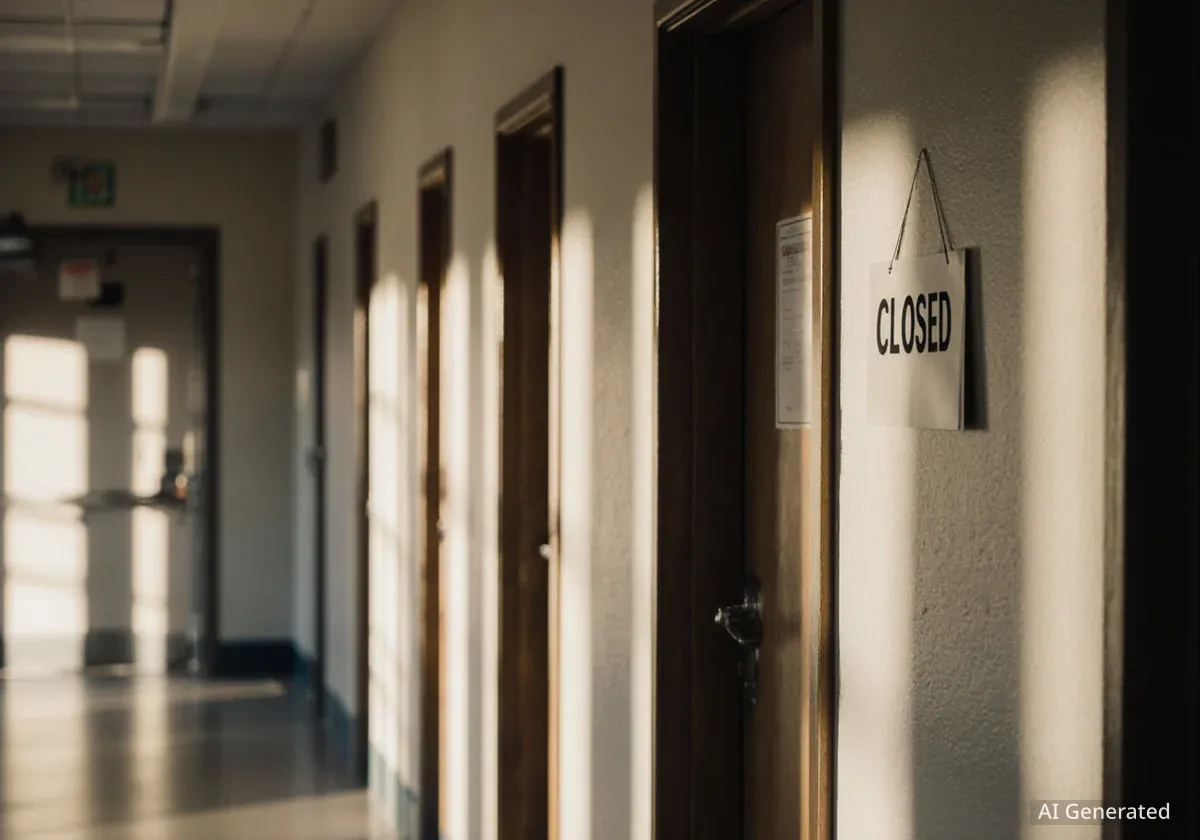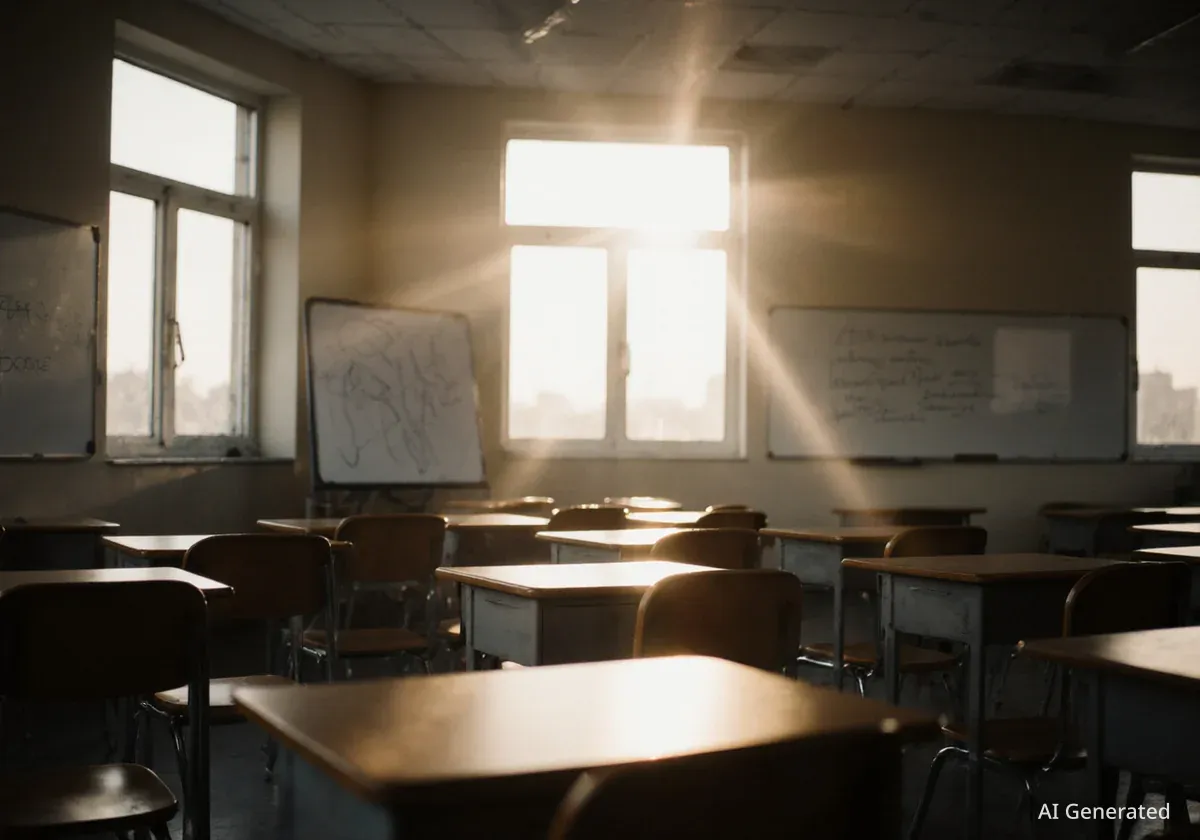A federal judge has directed the Trump administration to reinstate more than $1 billion in funding for school-based mental health programs. The grants, established by Congress following the school shooting in Uvalde, Texas, were recently cut by the Department of Education.
The court's decision reverses a move made in April, when the department began halting funds intended to increase the number of school counselors and psychologists, citing a recent executive order targeting diversity, equity, and inclusion initiatives.
Key Takeaways
- A federal court has ordered the Trump administration to restore over $1 billion in school mental health funding.
- The grants were a congressional response to the Uvalde elementary school shooting.
- The Department of Education had cut the funds in April, linking the action to an executive order against diversity, equity, and inclusion (DEI) programs.
- The funding is designed to support student counseling and help train new school psychologists.
Federal Court Intervenes on Funding Cuts
A significant legal decision was handed down this week, compelling the federal government to reverse course on major funding cuts to school mental health services. A federal judge issued a direct order to the Trump administration, mandating the immediate restoration of grants valued at over $1 billion.
These funds are part of a program specifically created to address the growing mental health crisis among students. The court's ruling effectively nullifies the Department of Education's actions from April, which had put a stop to the distribution of these congressionally approved funds.
The Uvalde Response Initiative
The funding program at the center of this legal battle was not a routine budget item. It was established by Congress as a direct legislative response to the tragic elementary school shooting in Uvalde, Texas. The goal was to provide tangible resources to schools nationwide to prevent future tragedies by bolstering mental health support systems for students.
The Administration's Justification for the Cuts
The Department of Education had defended its decision to halt the funding by referencing a January executive order signed by President Donald Trump. The order called for the elimination of federal programs that promote diversity, equity, and inclusion (DEI).
According to federal education officials, the mental health grants were being used in part to help diversify the pool of school psychologists. They argued this objective fell under the scope of the anti-DEI executive order, providing the basis for cutting off the financial pipeline.
This interpretation has now been challenged by the judicial branch, which has prioritized the original intent of the congressionally approved funding.
The grants in question represent a substantial investment in the nation's educational infrastructure, aimed at funding student counseling and removing financial hurdles for individuals pursuing careers as school psychologists.
Impact on Schools and Students
The initial decision to cut the funding sent ripples of concern through school districts across the country. Many were counting on these grants to hire desperately needed counselors and mental health professionals. The uncertainty had placed numerous planned initiatives on hold.
The program was designed with two primary goals in mind:
- Increase Student Access: Provide direct funding for counseling and mental health support within school buildings, making it easier for students to get help.
- Bolster the Professional Pipeline: Offer financial assistance and incentives to individuals training to become school psychologists, addressing a nationwide shortage of qualified professionals.
With the judge's order, school districts can now expect to see these crucial funds restored, though the timeline for redistribution remains to be clarified by the Department of Education.
The Broader Political Debate
This court case highlights a larger, ongoing conflict between the executive branch and congressional intent, particularly concerning the implementation of the president's anti-DEI executive order.
Critics of the administration's actions argued that cutting a mental health program established after a school massacre was a misapplication of the executive order. They contended that the primary purpose of the funding was student safety and well-being, not DEI initiatives.
"The funds were approved by Congress with a clear and urgent purpose: to protect our children and support their mental health in the wake of unspeakable tragedy," one policy analyst noted. "Using an executive order to dismantle that is a profound overreach."
Supporters of the administration's initial move maintained that they were simply following the president's directive to eliminate what they view as divisive DEI-related spending across all federal agencies. The court's ruling, however, suggests that such a broad application may face legal challenges, especially when it conflicts with specific legislation passed by Congress.
As schools await the restoration of these vital resources, the ruling serves as a pivotal moment in the ongoing debate over executive authority and the funding of essential public services.





